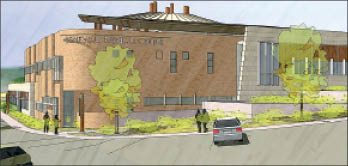
Home » Cd'A Tribe seeks contractor bids for $17.3 million clinic
Cd'A Tribe seeks contractor bids for $17.3 million clinic
Oregon firm is named project manager for new Benewah Medical Center

May 19, 2010
The Coeur d'Alene Tribe has selected an Oregon firm as construction manager for a planned $17.3 million outpatient clinic in North Idaho, and now is soliciting qualifications and bids from general contractors.
Wenaha Construction Management, of Pendleton, Ore., will represent the tribe as a project manager for constructing the new Benewah Medical Center near Plummer, about 30 miles south of Coeur d'Alene, says tribal spokesman Marc Stewart.
The tribe says it's accepting qualification information from interested contractors until May 27 and then will invite selected contractors to submit bids, which will be due June 15.
Construction is slated to start this summer and to be completed by fall of 2012.
The planned center, a 50,000-square-foot, two-floor facility, will be located on a 6-acre parcel of farmland the tribe owns on the west side of U.S. 95, about a mile northwest of the current medical center, which is located at 1115 B Street, in Plummer, Stewart says.
The planned facility will have more than twice the floor space of the current 20-year-old facility and will include 24 exam rooms on the 30,000-square-foot main floor, he says. The main level also will house the tribe's medical, dental, community health, counseling, pharmacy, medical lab, and patient financial services.
Some of those services now are scattered in separate buildings in Plummer, Stewart says.
The 20,000-square-foot lower level of the planned center will house its administration offices, classrooms, a staff break room, electrical and mechanical rooms, and storage space.
A separate 1,600-square-foot building will house maintenance equipment for the medical center.
Spokane-based NAC|Architecture designed the planned structure.
The project will be funded largely through an $11.8 million federal grant awarded last year through the Affordable Health Care Act. The tribe will chip in $3 million, and the medical center has set aside another $2.5 million for the project.
Benewah Medical Center currently employs 122 people, Stewart says. It serves 6,500 patients, about half of whom aren't tribal members.
Latest News
Related Articles





